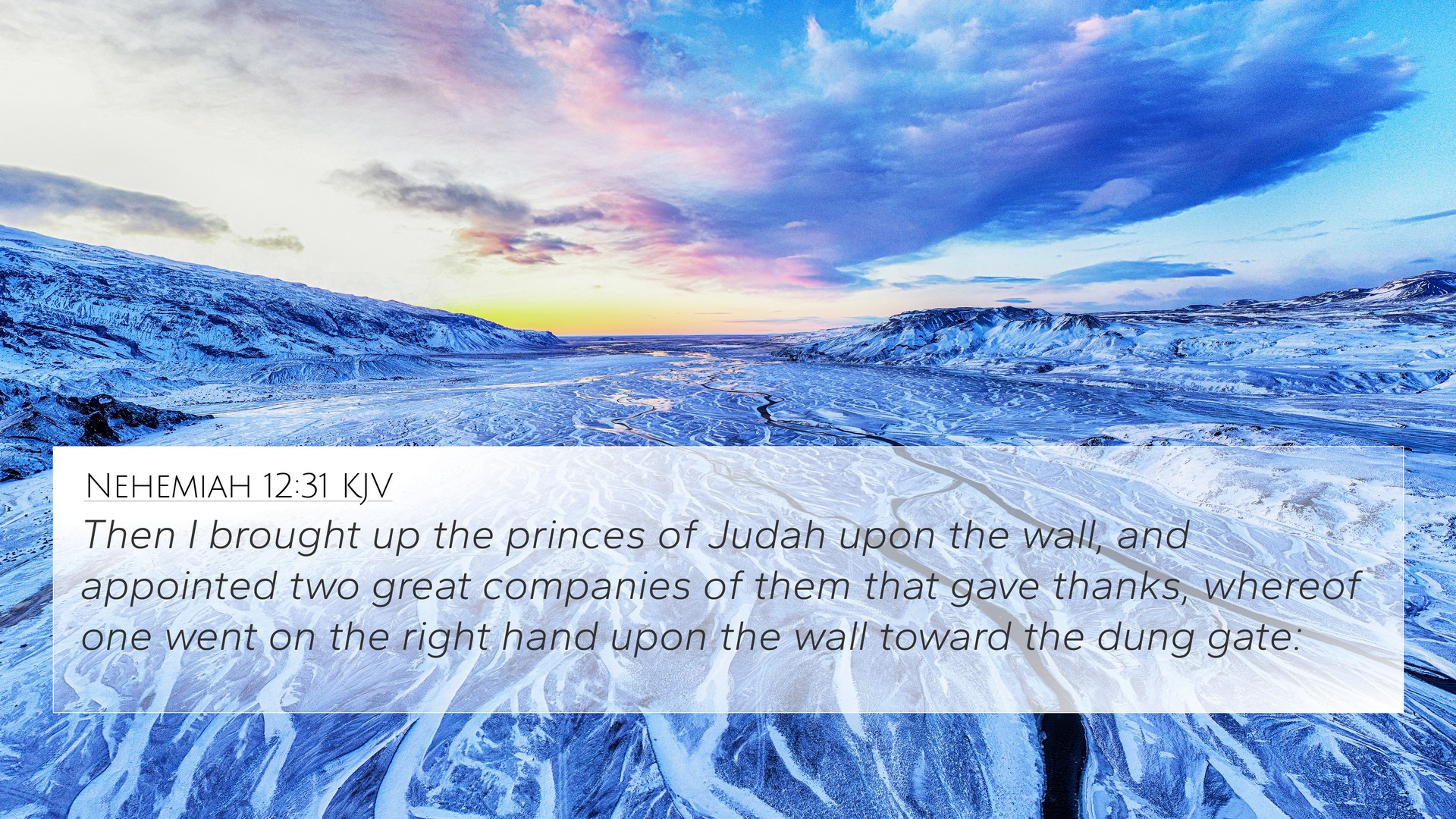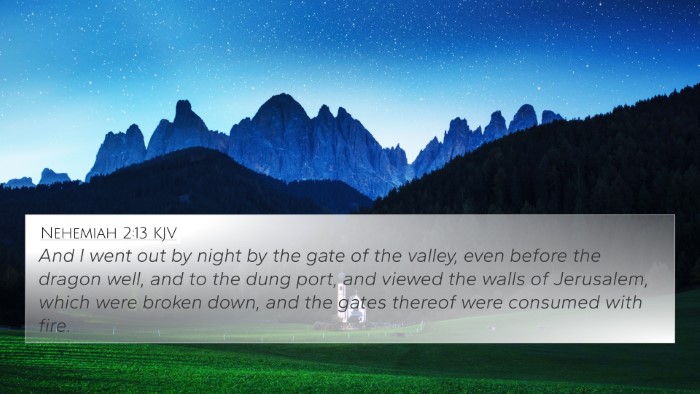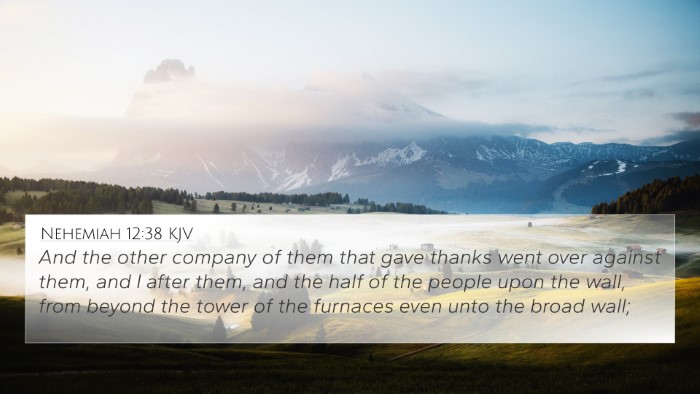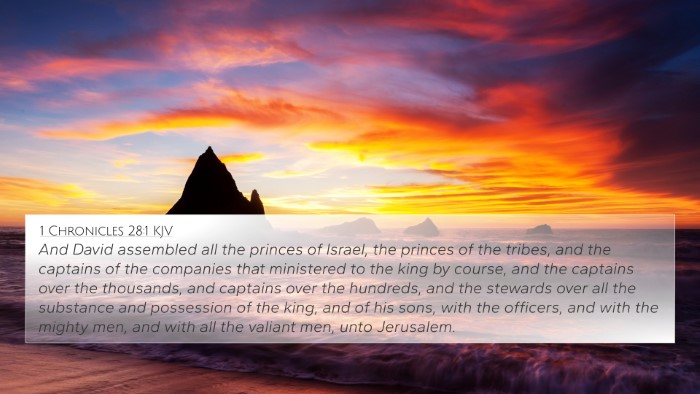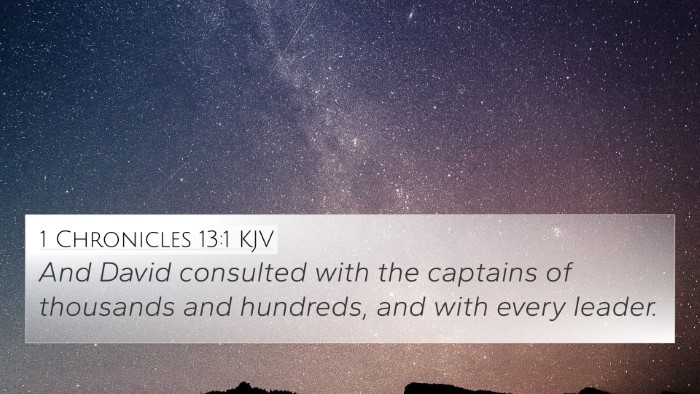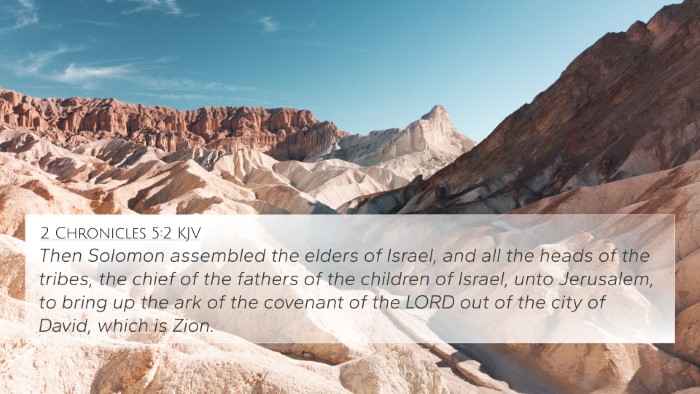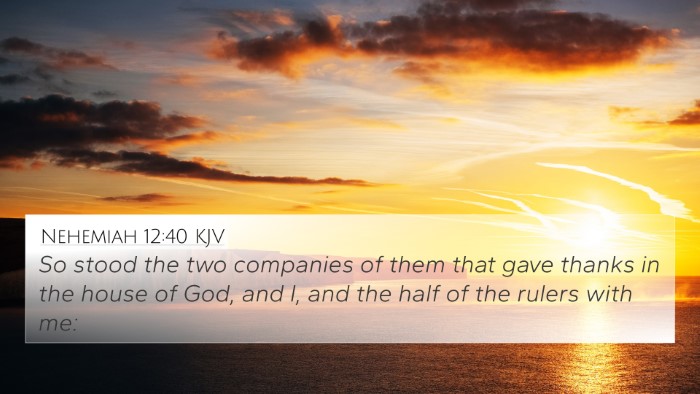Understanding Nehemiah 12:31
Bible Verse: "Then I brought up the princes of Judah upon the wall, and appointed two great companies of them that gave thanks, and went in procession: one company went on the right hand upon the wall toward the dung gate:" (Nehemiah 12:31)
Context and Importance
Nehemiah 12:31 is situated in a pivotal moment in the history of the Israelites as they return from exile. This verse occurs during the dedication of the wall of Jerusalem, highlighting the joy and gratitude expressed by the Jewish people as they rebuild their city and reaffirm their covenant with God.
Summary of Insights
- Matthew Henry: Emphasizes the ceremonial aspect of this moment, indicating that public worship and gratitude are vital components of consecrating any aspect of life. Nehemiah's leading of the processions signifies a unifying act that reflects the joy of the people.
- Albert Barnes: Notes the strategic positioning of the singers and worshippers, indicating the importance of order and organization in worship. The division into two companies symbolizes diversity in unity, as the people collectively express their gratitude and devotion.
- Adam Clarke: Highlights the significance of the "dung gate," mentioning the necessity of acknowledging the lowly aspects of our existence in the presence of God. This teaches humility and appreciation for the entirety of life, recognizing God's intervention even in less favorable circumstances.
Thematic Connections
This verse resonates with themes of worship, unity, and gratitude throughout the Bible. Here are some thematic Bible verse connections:
- Psalm 100:4: "Enter into his gates with thanksgiving, and into his courts with praise: be thankful unto him, and bless his name."
- Hebrews 13:15: "By him therefore let us offer the sacrifice of praise to God continually, that is, the fruit of our lips giving thanks to his name."
- 1 Chronicles 16:7: "Then on that day David delivered first this psalm to thank the LORD into the hand of Asaph and his brethren."
- Ezra 3:11: "And they sang together by course in praising and giving thanks unto the LORD; because he is good, for his mercy endures forever toward Israel."
- Psalm 126:2: "Then was our mouth filled with laughter, and our tongue with singing: then said they among the heathen, The LORD has done great things for them."
- Romans 12:1: "I beseech you therefore, brethren, by the mercies of God, that ye present your bodies a living sacrifice, holy, acceptable unto God, which is your reasonable service."
- Philippians 4:6: "Be careful for nothing; but in every thing by prayer and supplication with thanksgiving let your requests be made known unto God."
Cross-Referencing Biblical Texts
Nehemiah 12:31 serves as an excellent example of how different Scriptures can interlink, showcasing a rich tapestry of worship, dedication, and communal thanksgiving. By engaging in cross-referencing Biblical texts, believers can deepen their understanding of similar themes present throughout the Scriptures.
Tools for Bible Cross-Referencing
Utilizing various tools can enhance the study and understanding of cross-references in the Bible:
- Bible Concordance: A useful resource to find where specific words and themes appear throughout the Bible.
- Bible Cross-Reference Guide: Guides and tools that outline connections between verses for deeper study.
- Cross-Reference Bible Study: Methods to systematically study the relationships between verses across different texts.
Practical Application
The act of giving thanks and participating in communal worship, as illustrated in Nehemiah 12:31, encourages believers to engage actively in their faith. It promotes the idea of collective worship, where each individual’s gratitude contributes to the larger tapestry of community devotion.
Conclusion
Nehemiah 12:31 serves not only as a historical account but also as a profound lesson in worship, humility, and community. The insights drawn from public domain commentaries illuminate the significance of this verse, urging believers to cultivate gratitude and celebrate the collective acts of faith.
